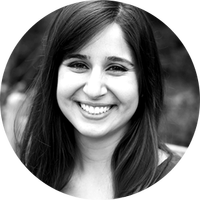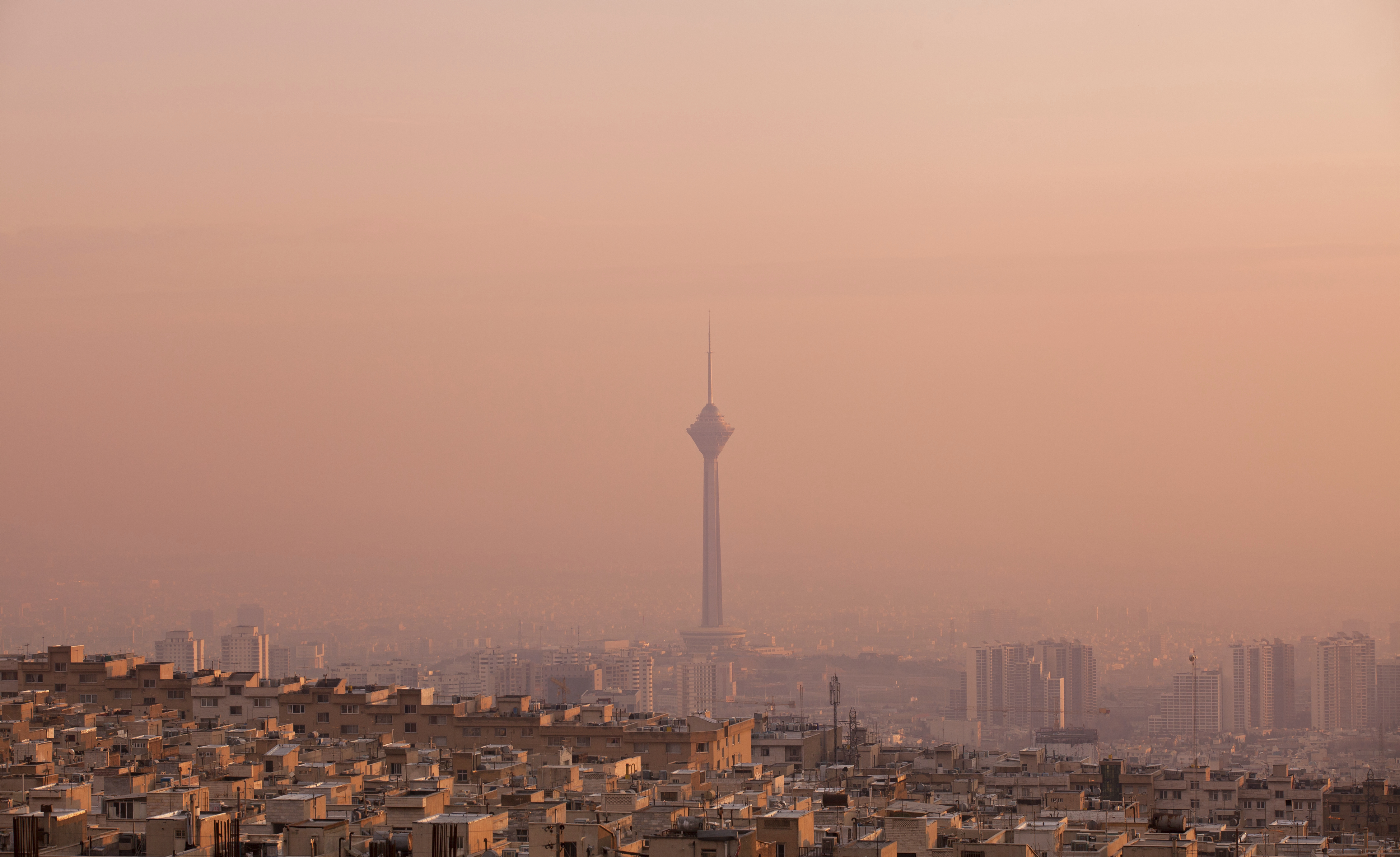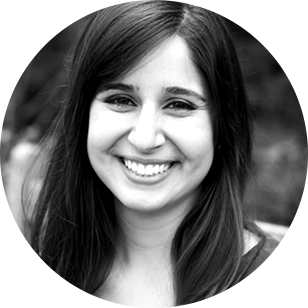Iran and I: Falling in love with my homeland that was never my home
I journeyed halfway around the world. I found myself.


My mother's voice was strained on the other end of the telephone. In fact, she was terrified. She had asked me thousands of times not to go to Iran. And there I was, telling her I was going anyway.
My parents fled Iran in 1982, three years after the Islamic Revolution that radically changed their home. I was born in the United States. I had never set foot on Iranian soil.
I feel more American than Persian. Even though I speak the language and celebrate the holidays, I don't know the country. I don't know the half of my family that still lives there. And in a way, that makes me feel like I don't know myself.
The Week
Escape your echo chamber. Get the facts behind the news, plus analysis from multiple perspectives.

Sign up for The Week's Free Newsletters
From our morning news briefing to a weekly Good News Newsletter, get the best of The Week delivered directly to your inbox.
From our morning news briefing to a weekly Good News Newsletter, get the best of The Week delivered directly to your inbox.
All my life, I've felt like there are two Irans. One is a controversial nation-state. The other is the magical land of my ancestors, the motherland, the place where my parents grew up and fell in love, then left their entire families behind when a dark shadow blanketed the country.
Both Irans are rife with struggle, fear, and memories of better days. And I needed to see them for myself.
My father goes back every year, but my mother has returned to Iran only once. "Just don't fall in love," she cautioned. "It's easy to this time of year, but it's not always like that."
I promised her I wouldn't.
A free daily email with the biggest news stories of the day – and the best features from TheWeek.com
It was 5 a.m. when my father and I landed at a busy and bustling Imam Khomeini International Airport. With all the people, it seemed like Christmas at LAX. But it was Persian New Year's Eve in Tehran.
I waded through the enormous crowd, tiptoeing on painfully swollen feet, the staleness of sleep hanging in the air. I heard laughter and jovial conversation in Farsi, the native tongue of Iran. I let it wash over me. It was strange and soothing all at once. But it wasn't mine.
I adjusted my roosari, my head scarf, once more, uncomfortable in the heat of the packed airport, but unable to shed any layers. I felt like everyone was looking at me. Maybe they were.
I was an outsider in a new country. I was nervous. But I was also home.
Tehran is nestled in a mountainside. Its hills remind me of San Francisco. Its buildings and shops remind me of London and Paris — small, crowded in tiny spaces, built upward but not too far upward. The air is smoggy and gives me a headache. It's easy to see why many Tehran residents are moving to the suburbs where the air is cleaner.
Much of Tehran seems like it was frozen in the early 1980s (which it was). My grandmother has lived in the suburb of Karaj for the past 20 years, yet her neighborhood is still under development. Most cars are old, manual-shift Peugeots or Renaults, the kind where you have to roll down the windows and reach across to unlock the passenger side door.
My parents' college friends were stunned by how much I looked like an old friend: my mother.
At the same time, there are glimmers in Tehran of the modern, Western lifestyle. There are malls where people can buy the latest iPhone and Samsung tablet. There's no copyright law, so any small coffee shop can sell mugs with Starbucks logos. There's an "IKEA" — but it's a teeny space on the bottom floor of a strip mall selling oversized chess pieces and artsy light fixtures. You will not find a Malm bed set there.
Flashing lights and signs advertise lunch, dinner, tea, groceries, and ice cream. With no (legal) bars or clubs, restaurants abound: fast food, pizza, smoothies and, of course, regional fare. Sidewalks range from pretty tiles to cracked concrete to stretches of dirt. Pedestrians encounter all three in the same city block. People seem to prefer driving, and no inch of road is left undriven. Traffic lines are meaningless. If there's room on the shoulder, three cars will squeeze by.
My father and I visited a mountainside neighborhood with a charming cobblestone street that winds up toward the peak. It's lined with shops selling dried fruit, preserves, lavashak (fruit leather), and of course, restaurants and tea houses. They're filled with hikers and friends. It's chilly in the early spring. The sound of waterfalls and happy chatter float in the fresh mountain air, rising above the city smog.
We went to the Ghahveh Talkh coffee shop (meaning "bitter coffee," which is also the name of a popular Iranian TV show). We sipped cappuccinos while checking emails and Instagram (the government selectively filters the internet, so no Facebook or Twitter). The barista seemed to have figured out that I'm American. He blasted "Chicken Fried" and other country music. "It's difficult to find good country," he lamented. "But I enjoy it very much."
So far, this is neither of the Irans I thought I knew.
My mother talks about the gasht-e ershad (the "morality police") with disgust. The morality police keep citizens in line socially. My mother describes the early days of the revolution where they were known to unnecessarily arrest and brutalize perceived rule-breakers. Things are better now, but they are still not good.
The uncertainties of a strict dress and moral code informed by religion are frightening. The more religious citizens follow the letter of the law, covering completely with a chador (a floor-length black cape that covers the head and body). Men and women who aren't related or married must avoid shaking hands or speaking directly to each other. The women don't remove their roosari or chador in the presence of those men, and they ride in separate sections of the Metro — the front and back cars are women-only, the rest is co-ed.
The rest of Iran follows the spirit of the law, if not its letter. They also step out.
Non-religious men wear tailored suit jackets and jeans, or patterned shirts and colorful pants with leather wing tips. The younger men grow hipster mustaches or beards. Women adorn themselves in bright colors, chic fabrics, and gold jewelry. They treat their beautiful faces like a canvas, meticulously applying bright lipstick and eyeshadow punctuated with sharp, charcoal lines. Some have plastic surgery to plump their lips or enhance other features.
The one time I saw the gasht-e ershad — a man in an army uniform carrying a semi-automatic weapon and a woman dressed in a chador — the American in me froze. Should I be afraid? Are they going to arrest me?
My father thought it was a fine idea to ask them for directions.
The woman looked at me, sizing me up. She leaned over and asked my father if I understood "our language." He was baffled: To him, I'm clearly Iranian.
I was wearing my thick-rimmed, thick-lensed eyeglasses. My chambray shirt and too-tight gray jeans were visible under my one-size-too-big trenchcoat. She looked me up and down with what I can only describe as repugnance. She gruffly ordered me to button my jacket.
That was my mistake. I didn't realize I was breaking a rule.
This was the closest I came to my mother's oppressive Iran.
My parents emphasized studying and good grades so I could become a successful engineer, doctor, or lawyer. We never missed a Norooz celebration. We spoke Farsi at home. I went to Farsi school. My mother cooked Persian cuisine as often as possible.
But being Persian was something that I didn't bother talking about because no one seemed to know what it meant. My peers didn't know where Iran was. They'd never been exposed to the food or heard the language. They didn't know there were non-Muslim Iranians. Being Persian was something I did at home.
I stressed over how my friends would react to my favorite dish, ghormeh sabzi (a stew made with a melange of herbs, kidney beans, and hearty chunks of beef), for lunch instead of ham and cheese sandwiches. How could a 9-year-old describe the meaty, complex flavors of the herb stew to another 9-year-old?
In Iran, the parts of me that are Persian bloomed. I found comfort hearing Farsi all the time, and learning new words. I looked forward to having breakfast the way I did growing up: sangak (bread) with an array of spreads like French goat cheese, honey, cream, eggs, and tea.
Here, there was no driving an hour to the nearest family member's home, or Persian restaurant, no struggle to find ingredients at the ethnic food store. To get a drool-worthy kabob barg (juicy, tender beef tenderloin or filet served with hot, buttery basmati or jasmine rice cooked with saffron) or a starter of mast o museer (creamy yogurt dip with crunchy shallots), just go out. Anywhere. Or don't. Grandma will make it.
And all my family is here.
I spent 10 days in my grandmother's house, having breakfast, talking about life, laughing, recounting the events of the day before. I met cousins and family friends I'd only heard of. I was beginning to see where I came from.
I met my parents' college friends. They felt like they were thrown back in time, stunned by how much I looked like an old friend: my mother.
I wanted to know everything: how my parents met, the funniest story about my father, the worst trouble they ever got into, the protests they attended before the revolution, their time in the military. We looked at old photo albums. They told me about impromptu trips north to the Caspian Sea at 2 a.m. and sleeping in their cars because there were no hotels around. They told me about how they'd throw big parties and how terrifying it was when the morality police knocked on their door that one time. My father told me about how he and my mother fled Iran and their first years in the U.S. His friends told me they visited my parents to go to Disneyland and Knott's Berry Farm.
They wanted to know everything: What I did for work, why I wanted to visit, what I thought of Iran.
It's a new feeling: to know there are people on the other side of the world who have been my biggest advocates all this time and I'm only just now meeting them. They could have seen me as a visiting American. Instead they welcomed me as family.
In Iran, I had heritage. I met people who grew up the same way I did, who experienced the same things I did. It felt good to know people who not only understand the quirks about my life, but exhibited them too. I'm an extension of them.
I broke my promise to my mother: I fell in love.
I fell in love with my Iran, a place that showed me I'm more Persian than I ever thought I was. What I thought was a watered-down Persian identity is actually full Persian culture entwined with my American upbringing.
My 10-day visit was barely enough to scratch the surface of what it's like to live in Iran. But I feel rooted. I feel history. I feel like I know myself a little bit better.
I'm sorry, mom. But I can't wait to go back.
Alma Bahman is Chicago-based writer and editor covering B2B and business. She's previously written for the Lawrence Journal-World and WBEZ.org.
-
 A peek inside Europe’s luxury new sleeper bus
A peek inside Europe’s luxury new sleeper busThe Week Recommends Overnight service with stops across Switzerland and the Netherlands promises a comfortable no-fly adventure
-
 Space data centers could be joining the orbit
Space data centers could be joining the orbitUnder the radar The AI revolution is going cosmic
-
 Codeword: December 23, 2025
Codeword: December 23, 2025The daily codeword puzzle from The Week
